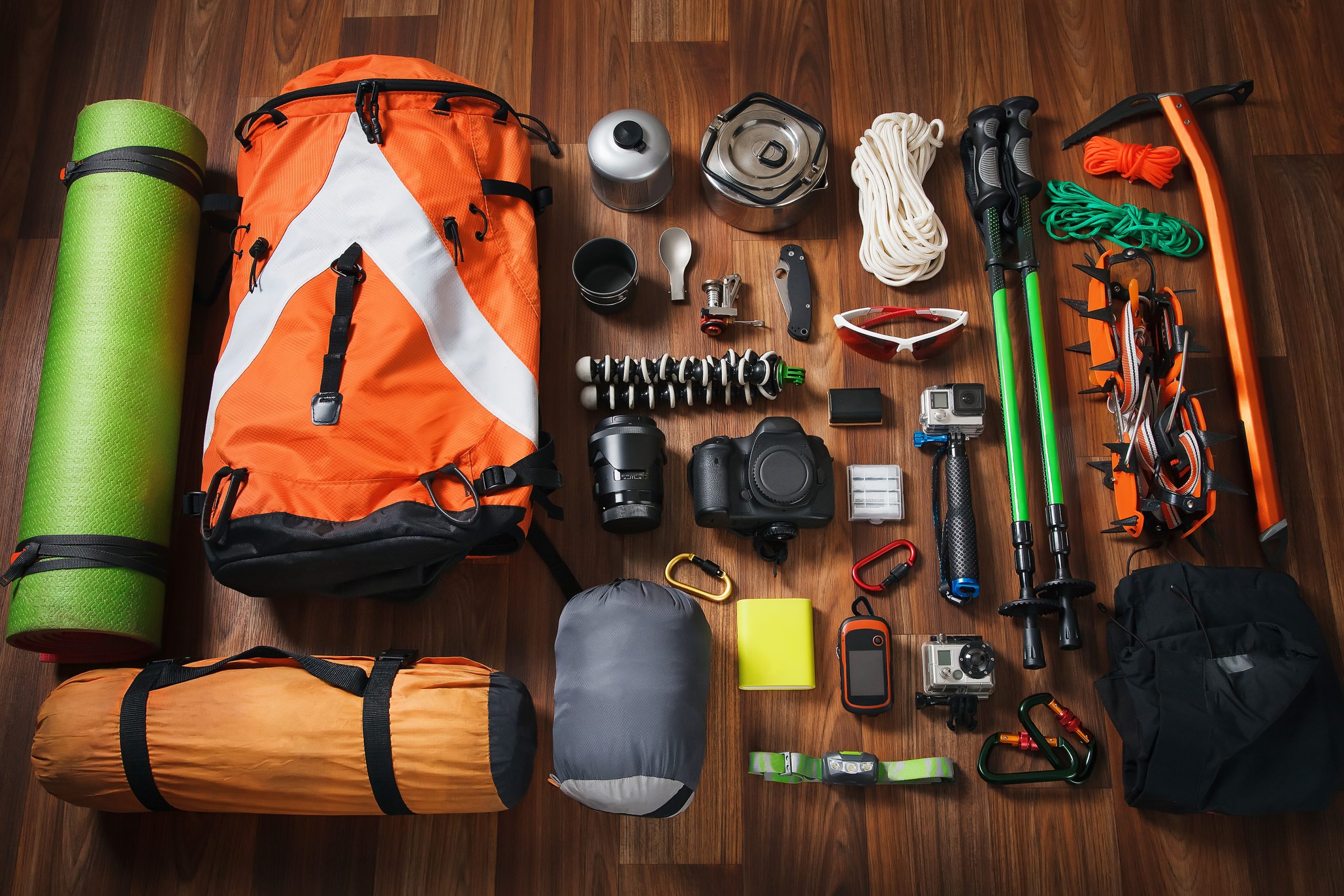
In order to be safe and comfortable during your Mount Kilimanjaro hike, you’ll need to bring important gear and supplies with you
Getting informed, beign curious and reading all about climbing Kilimanjaro months before the adventure is one of the most important steps on the way to conquer the summit. That’s also a smaller but very important logistical part, that’s why we’ve compiled the essentials in this Kilimanjaro Packing List.
While climbing Mount Kilimanjaro, we recommend that you take a medium-sized daypack. You’ll have to pack things like wipes, sunscreen, sunglasses, some snacks or food, water, money, a passport, a camera and extra clothing in case you need. The rest of your clothing and gear goes in a large duffel bag that will be carried by a porter from camp to camp. Guide companies typically require that your duffel bag with gear weighs no more than 33 lbs (15 kilos).
Kilimanjaro packing list
- 4 pairs of thick trekking socks;
- 3-4 thermal undergarments;
- 4 thermal t-shirts;
- Underwear;
- 2 thermal long sleeved tops;
- Normal t-shirts;
- 1 fleece sweater;
- 1 ski-mask;
- 1 balaclava;
- 1 sun hat;
- 1 pair of sunglasses (with UV protection);
- 1 pair of thin warm gloves;
- 1 pair of thick warm gloves (These will be worn on the day you summit);
- 1 pair of rain trousers/waterproof trousers;
- 1 rain jacket;
- 2 pairs of warm trousers;
- 1 winter jacket (wind stopper summit).
Daypack on Kilimanjaro
- Waterproof clothes;
- A 3-litre water system or 3-litre water bottle;
- A thermos flask;
- 1 pair of hiking poles;
- 1 pair of gaiters;
- 1 sleeping bag (note that temperatures do fall between -10 °C to -15 °C; 14 °F to 5 °F, so ensure that the sleeping bag is warm enough)
- 1 head torch + spare batteries;
- 1 waterproof rack sack and 1 poncho.
Top tips for Kilimanjaro packing list
— REDUCE COSTS BY HIRING. You can hire a kit through us, or borrow from friends or family. Hiring a high-quality piece of equipment is usually better than purchasing a cheap version.
— YOU WILL NEED TWO BAGS. One duffel bag for your Kilimanjaro porters to carry and the other a backpack for you to carry during the day.
— THE PORTER BAG SHOULD BE SOFT AS THEY USUALLY CARRY THESE ON THEIR HEADS. A duffel bag or rucksack would be fine.
— KILIMANJARO PORTERS CAN STRICTLY ONLY CARRY 15 KG OF KIT FOR YOU. The 15 kg is including the weight of the bag. This is enough for the mountain but you will need to be disciplined.
— EXTRA LUGGAGE. Any additional luggage you need in Tanzania, but not on the mountain, can be left in storage at your accommodation.
— TRAVEL WEARING A SET OF TREKKING CLOTHES AND YOUR TREKKING BOOTS. Or carrying them in your hand luggage on the flight, along with rain gear, sunscreen and any medication. Luggage can get delayed but you’ll still be able and calm to start your Kilimanjaro hike.
— LOTS OF CLOTHING LAYERS ARE KEY. Temperatures fluctuate enormously from day to night and between the bottom of the mountain and the summit.
— COTTON IS NOT APPROPRIATE. Cheap, moisture-wicking trekking clothing is easily available in sports and outdoor shops. Merino wool or synthetic fabrics work well.
— PLAN TO EXPERIENCE TEMPERATURES RANGING FROM -15°C TO 35°C; 5°F to 95°F. Please do not underestimate the weather and temperature conditions.
— KEEP YOUR BAG ORGANIZED. Pack multiple sizes of stuff sacks, lightweight dry bags or large refuse bags for keeping your bag organised, ensuring clothing and your sleeping bag stay dry and enabling you to separate dirty items from clean.
— WATERPROOF JACKET AND TROUSERS. Bring good quality waterproof jacket and trousers for wet conditions and waterproof covers for your bags.
— COMFORTABLE HIKING BOOTS. Make sure you wear and test your kit before arrival, particularly your hiking boots.
— REUSABLE WATER BOTTLES. Disposable plastic bottles are not permitted in the National Park. We recommend bringing a combination of reusable water bottles and a hydration pack/bladder.
— SOLAR PROTECTION. Sun hat, sun cream, sunglasses and SPF lip protection are essential. The sun is strong up there, even on very cloudy days.
— HYGIENE. Antibacterial gel and wipes are very important for protecting against traveller’s diarrhoea and other bugs.
— SNACKS. As you will walk for many hours between meals, snacks are essential, also for summit nights.
